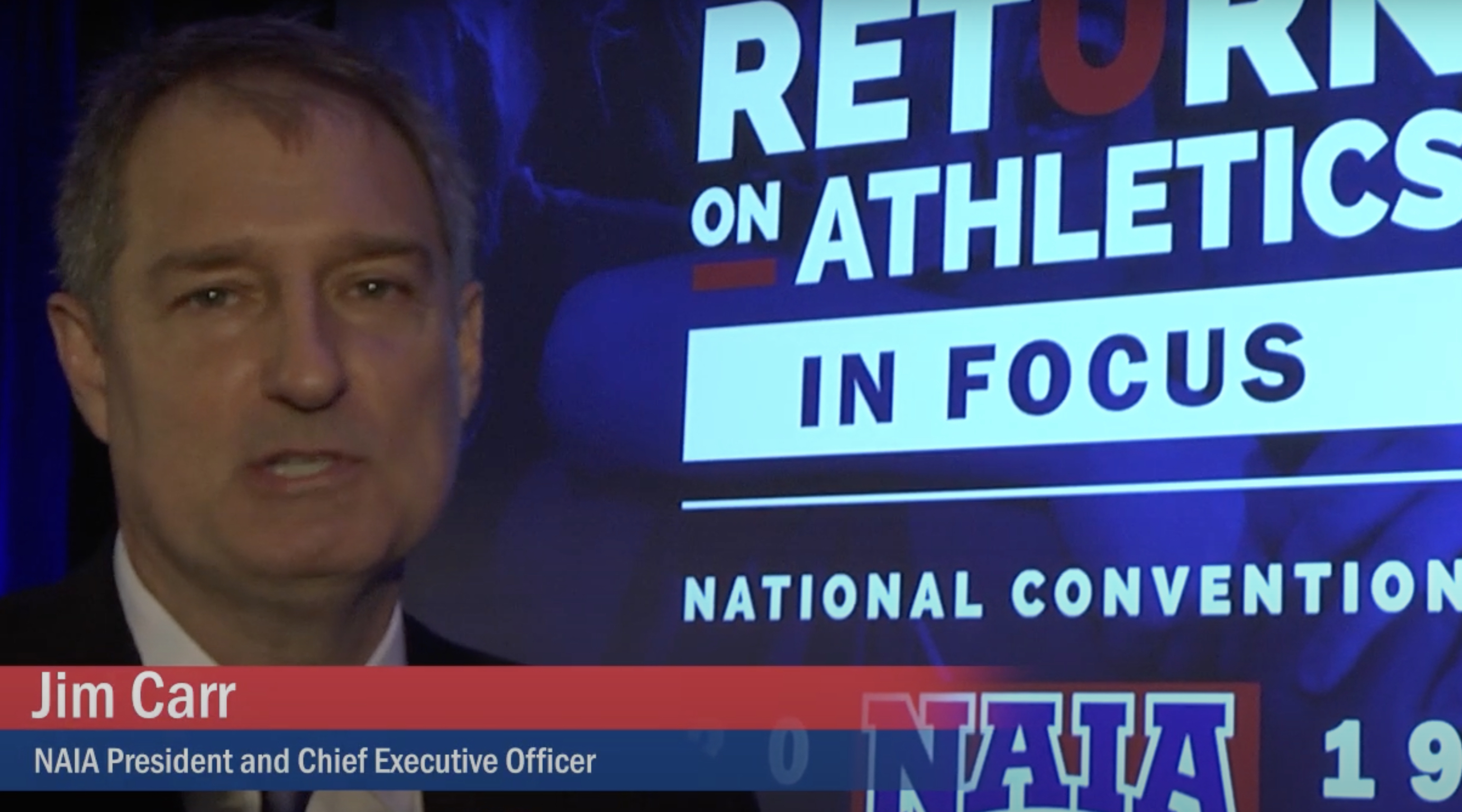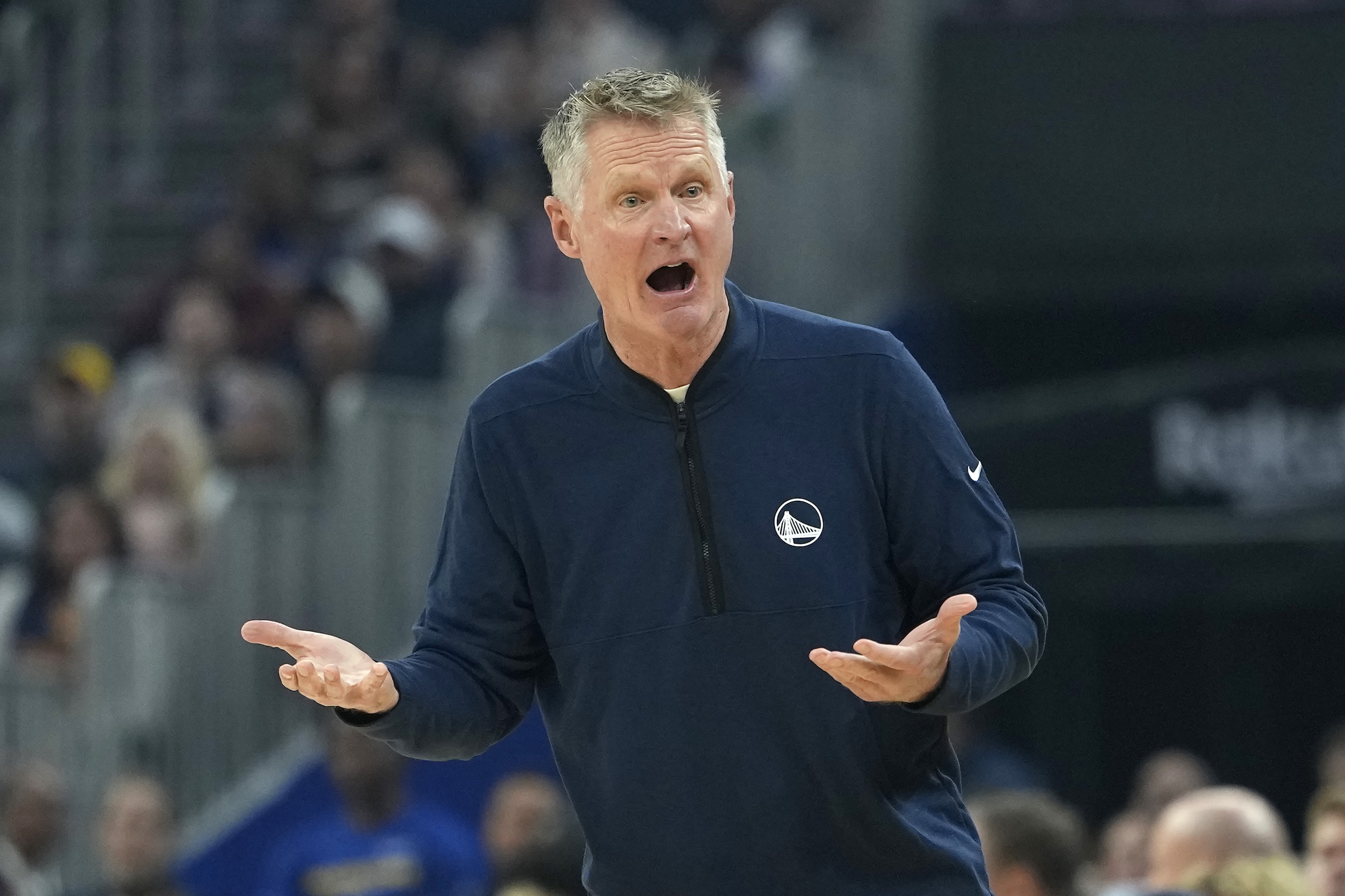The National Association of Intercollegiate Athletics Council of Presidents voted 20-0 on Monday to ban trans women from competing in sports. The NAIA is the governing body that runs college athletics' second tier, overseeing some 83,000 athletes across 241 schools. Per the policy it adopted on Monday in the name of "fair and safe competition opportunities for all student-athletes," trans women will be banned from competition effective Aug. 1, and anyone who begins hormone therapy will have to let the national NAIA office know and will be allowed to practice with their team but cannot compete.
The dehumanizing language in the policy, along with its insistence on defining biological sex and requirement that any transitioning athletes alert a central office, gives the game away that this is a culture war rear-guard action rather than anything having to do with fairness in sports. Even more, it continues in the tradition of recent anti-trans legislation that provides cover to the TERFy notion of exclusively protecting young girls; under the NAIA policy, "All eligible NAIA student-athletes may participate in NAIA-sponsored male sports," with no specific carveout for an athlete who transitions to male. Nobody knows whether there are any trans athletes competing at the NAIA level, nor is the impetus for the new policy any actual events taking place in any actual competitions. The NAIA formed what it called the Transgender Task Force in April 2022, days after Penn swimmer Lia Thomas won a gold medal at the 2022 NCAA Swimming Championships. Seventy-five percent of NAIA schools are private, and just over half (125 of 241) have a religious affiliation. Of the 20 people who voted in favor of the policy, 17 represent religious institutions.
"This is unacceptable and blatant discrimination that not only harms trans, nonbinary and intersex individuals, but limits the potential of all athletes," National Women's Law Center senior counsel Shiwali Patel said in a statement to the Associated Press. "It's important to recognize that these discriminatory policies don't enhance fairness in competition. Instead, they send a message of exclusion and reinforce dangerous stereotypes that harm all women." The NAIA is the largest athletic institution to formalize such a policy, though it's significantly smaller and less powerful than the NCAA, which is the true battleground for the national transphobe lobby. The NCAA allows trans women to compete if they document one year of hormone therapy. In 2022, it aligned its policies with those of the U.S. Olympic Committee, though that did not represent a significant change.
Before South Carolina won their third national championship this past weekend, an ogre from Outkick hijacked Dawn Staley's presser with a question about whether trans women should be allowed to play sports. Despite this little worm crashing Staley's pre-title game presser with an irrelevant missive from the culture war, the SC coach took it in stride, voiced her support for trans athletes and moved on. This is, I think, an instructive incident in the way that the campaign against trans athletes is less about fairness in sports and more about restricting the rights of trans people. If the mouth-breathers at Outkick cared about women's sports, one would assume their somehow credentialed writer would ask a question about, you know, sports.
The NCAA is pretty clearly waiting for someone to regulate this issue before it has to make a move. Last month current and former athletes sued the NCAA, claiming it violated both Title IX and the Fourteenth Amendment by allowing Thomas to compete in 2022. "College sports are the premier stage for women's sports in America, and while the NCAA does not comment on pending litigation, the NCAA will continue to promote Title IX, make unprecedented investments in women's sports and ensure fair competition for all student-athletes in all NCAA championships," the NCAA said in a statement regarding the lawsuit. That is exactly the same statement, minus the clause about litigation, that it gave in response to the NAIA vote.
In fairness, the NCAA has a legitimate claim on thinking this would no longer be its problem by now. Joe Biden campaigned for president in 2020 in part on strengthening Title IX, promising to immediately overturn Trump administration rules that changed how colleges were responsible for dealing with allegations of sexual assault and sexual harassment. His administration also said they would seek to prohibit blanket bans on trans athletes, though years later, nothing has happened and every self-imposed deadline has passed. Last year, they split the proposed reforms on trans athletes and campus sexual assault and announced a suite of proposed reforms, though they remain in limbo. Half of the states in the U.S. have now instituted bans on trans women and girls participating in sports, a movement that has picked up steam and is headed for the NCAA. The administration has a limited window to do something about it, especially with an election looming later this year.






